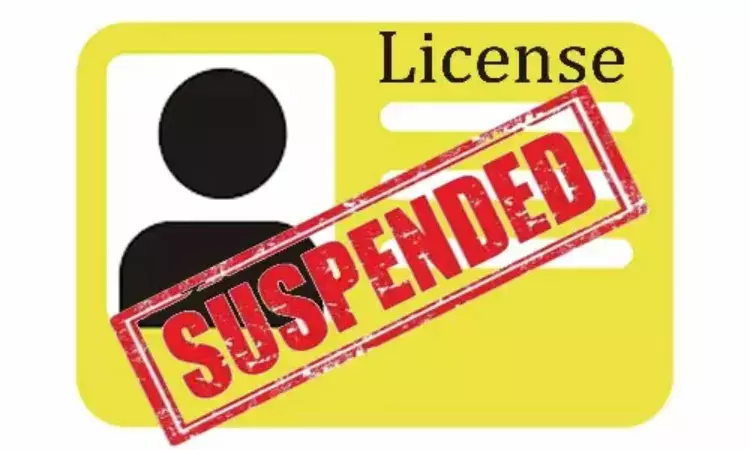- Home
- Medical news & Guidelines
- Anesthesiology
- Cardiology and CTVS
- Critical Care
- Dentistry
- Dermatology
- Diabetes and Endocrinology
- ENT
- Gastroenterology
- Medicine
- Nephrology
- Neurology
- Obstretics-Gynaecology
- Oncology
- Ophthalmology
- Orthopaedics
- Pediatrics-Neonatology
- Psychiatry
- Pulmonology
- Radiology
- Surgery
- Urology
- Laboratory Medicine
- Diet
- Nursing
- Paramedical
- Physiotherapy
- Health news
- Fact Check
- Bone Health Fact Check
- Brain Health Fact Check
- Cancer Related Fact Check
- Child Care Fact Check
- Dental and oral health fact check
- Diabetes and metabolic health fact check
- Diet and Nutrition Fact Check
- Eye and ENT Care Fact Check
- Fitness fact check
- Gut health fact check
- Heart health fact check
- Kidney health fact check
- Medical education fact check
- Men's health fact check
- Respiratory fact check
- Skin and hair care fact check
- Vaccine and Immunization fact check
- Women's health fact check
- AYUSH
- State News
- Andaman and Nicobar Islands
- Andhra Pradesh
- Arunachal Pradesh
- Assam
- Bihar
- Chandigarh
- Chattisgarh
- Dadra and Nagar Haveli
- Daman and Diu
- Delhi
- Goa
- Gujarat
- Haryana
- Himachal Pradesh
- Jammu & Kashmir
- Jharkhand
- Karnataka
- Kerala
- Ladakh
- Lakshadweep
- Madhya Pradesh
- Maharashtra
- Manipur
- Meghalaya
- Mizoram
- Nagaland
- Odisha
- Puducherry
- Punjab
- Rajasthan
- Sikkim
- Tamil Nadu
- Telangana
- Tripura
- Uttar Pradesh
- Uttrakhand
- West Bengal
- Medical Education
- Industry
South Korea Doctors Strike: Health Ministry notifies 2 doctors of license suspension

South Korea: In a bold move, South Korean authorities have announced the suspension of licenses for two senior doctors, marking the first punitive action against physicians amidst ongoing protests by medical interns and residents. The protests, which have spanned several weeks, have significantly disrupted hospital operations across the nation.
The impending suspensions come in response to the protests that erupted following the government's proposal to substantially increase medical school admissions, a move aimed at addressing the challenges posed by South Korea's rapidly ageing population.
According to officials, more than 90% of the country's 13,000 doctors-in-training participated in the strikes, voicing concerns over the feasibility and sustainability of the proposed recruitment plan. While the government asserts that the plan is crucial for bolstering the country's medical workforce, doctors argue that the sudden influx of students could overwhelm medical schools and undermine the quality of healthcare services.
The government's response to the protests has been firm. In early March, it initiated steps to suspend the licenses of striking junior doctors who defied orders to return to work by the end of February. Additionally, police are conducting a separate investigation into five senior members of the Korean Medical Association (KMA) for their alleged role in instigating and supporting the strikes.
Park Myung-Ha, one of the implicated senior members, revealed that he and another committee leader, Kim Taek-woo, received notifications from the government indicating a three-month suspension of their licenses starting from April 15. Park condemned the government's actions, accusing it of attempting to dismantle the KMA emergency committee and intimidate protesting doctors.
The Health Ministry said it wouldn't confirm any reported administrative steps imposed on individual doctors.
According to a PTI news report,"My fellow doctors and I are really angered and appalled by the government's measure," Park told The Associated Press.
About 12,000 junior doctors have been off the job for a month, but none has received a license suspension. Observers have said it would take a few months to suspend all their licenses and that the government would likely end up suspending only strike leaders.
Despite the ongoing protests, the impact on medical services remains mixed. While hundreds of surgeries and treatments have been delayed or canceled, officials assert that the country's handling of emergency and critical cases remains stable.
To mitigate the crisis, Vice Health Minister Park Min-soo urged senior doctors to dissuade the striking junior doctors from prolonging their protests, emphasizing the paramount importance of safeguarding public health.
"Under any circumstances, you must not use the lives of the people for negotiations," Park said.
In early February, the government said it would increase the country's medical school enrollment quota by 2,000 starting next year, from the current cap of 3,058 that has been unchanged since 2006, reports PTI.
The underlying debate over medical school admissions reflects broader concerns about the future of healthcare in South Korea. While the government contends that increased enrollment is necessary to address physician shortages, critics argue that it could exacerbate existing challenges, such as regional disparities in healthcare access and the prioritization of lucrative specialities over essential medical fields.
Surveys show a majority of the South Korean public support the government's recruitment plan. Critics say doctors — one of the best-paid professions in South Korea — are only worrying about the possibility of a lower income in the future.
Kajal Rajput joined Medical Dialogues as an Correspondent for the Latest Health News Section in 2019. She holds a Bachelor's degree in Arts from University of Delhi. She manly covers all the updates in health news, hospitals, doctors news, government policies and Health Ministry. She can be contacted at editorial@medicaldialogues.in Contact no. 011-43720751


